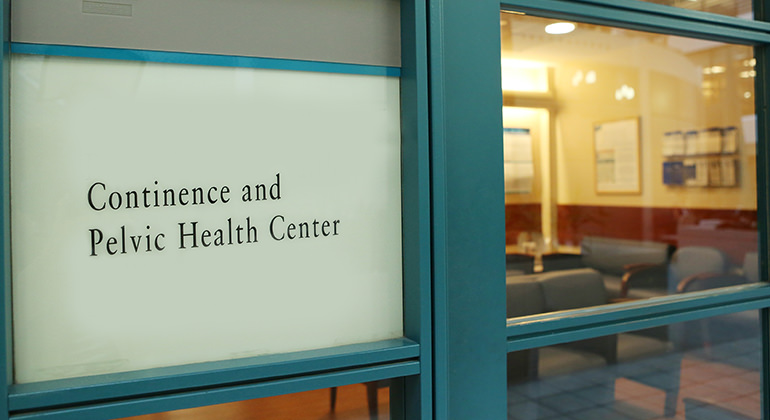Pelvic Organ Prolapse and Urinary Incontinence

Many women experience pelvic floor disorders, such as urinary and fecal incontinence, and vaginal, uterine, or rectal prolapse. But unfortunately, we rarely discuss these concerns. At Mount Sinai, our team of urogynecologists, female urologists, colorectal surgeons, physical therapists, and radiologists work together to provide you with an understanding and safe environment to discuss these issues and find relief from your symptoms. We cater to every need you might have in the treatment of pelvic floor problems.
What is Pelvic Organ Prolapse?
Pelvic organ prolapse (POP) is a common condition that occurs when the pelvic floor muscles are weakened and the pelvic organs (vagina, uterus, bladder, rectum) "drop". While it is not a dangerous condition, it can disrupt everyday life. The most common types of pelvic organ prolapse are cystocele (dropped bladder), rectocele (dropped rectum), and uterine prolapse.
Symptoms
Symptoms of POP can vary. Most women experience at least some of these symptoms:
- Pressure in the vagina and/or rectum
- A feeling that something is falling out or bulging from your vagina
- Incontinence
- Frequent urination
- Feeling as if not completely emptying bladder
- Constipation
We customize a treatment plan to care for your specific concern, including the severity of the condition, as well as your lifestyle issues and personal preferences.
Treatment Options
Treatment options we commonly use include placement of a vaginal pessary device, pelvic floor therapy, and surgery. For post-menopausal women, we may prescribe vaginal estrogen to increase your vaginal health, strengthen your vaginal muscles, and decrease your symptoms.
It is important to remember that prolapse is not dangerous, and there is never any need to rush to invasive treatment.
What is Urogynecology?
Urogynecology focuses on the health of female reproductive organs and the urinary tract.
Our team of urogynecologists has had intense training and experience in dealing with conditions such as pelvic organ prolapse and stress urinary incontinence. When you visit, we will complete a medical history and pelvic exam, then we will consult with you and formulate a specialized treatment plan to best suit your needs.
Urinary incontinence
One out of every three women experiences some form of incontinence. This is not a life-threatening condition, but it can have a huge effect on your daily life.
It can mean you have to map out bathroom locations, continuously stop what you are doing, or carry around incontinence pads.
At Mount Sinai, we commonly see two types of incontinence:
- Stress incontinence, which means you lose control with activity, cough, laugh or sneeze
- Urge incontinence, which is a sudden and sometimes uncontrollable urge to urinate
Treatment Options
Depending on the type of incontinence, there are various treatment options available:
- Medications
- Pelvic floor therapy
- Biofeedback
- Posterior tibial nerve stimulation
- Sacral nerve stimulation
- Surgery


